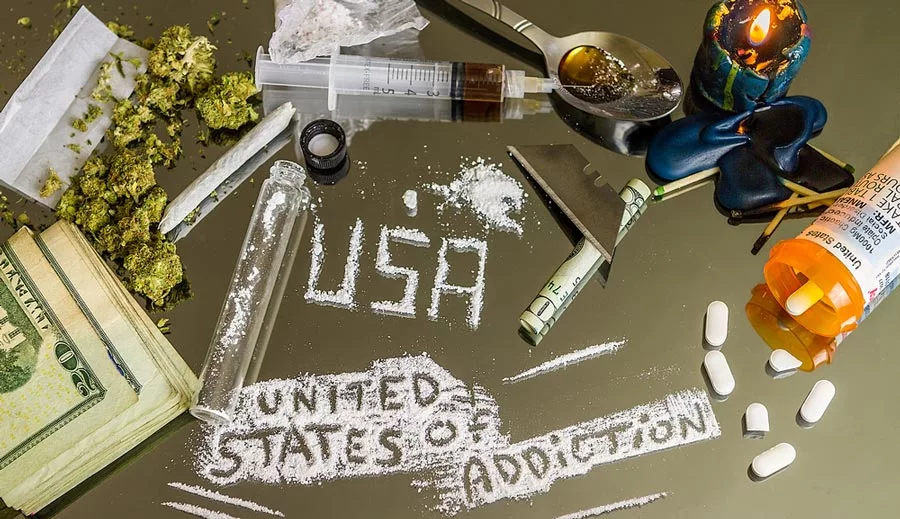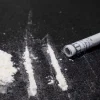Substance Abuse And Its Connection To Addiction
Substance abuse is the repeated use of alcohol, drugs, and/or other substances to the point where they negatively affect your health, mental state, or social life. Substance abuse can lead to addiction if it goes unchecked and untreated. Addiction is a chronic disease characterized by compulsive drug seeking and use despite harmful consequences.
It is considered a brain disease because repeated exposure to drugs changes the brain’s structure and how it works. These brain changes can be long-lasting and lead to an increased risk for many problems.
Keep reading to find out more information on how to stay sober, and how Resurgence Tennessee can help you achieve your sobriety goals!
Statistics On Substance Abuse In The United States

Substance abuse is a rising problem in the United States with troubling statistics that show just how bad the problem has become. In fact, over 700,000 people have died since 2020 from a substance overdose of some kind. The annual number of overdose deaths continues to rise by 4% on average. In fact, as recent as between 2012-2015, there was an over 260% increase in overdose deaths by synthetic opioids. These numbers are startling and indicate just how fatal these substances and habits can be.
Substance abuse causes addiction in the brain by affecting the reward system. This reward system is a group of interconnected brain regions that are involved in motivation, pleasure, and reinforcement of specific behaviors. It’s driven by dopamine, a chemical that transmits signals between nerve cells. When activated, dopamine prompts us to repeat behaviors that we’ve found rewarding in the past.
Drugs or alcohol hijack this natural reward system by flooding it with dopamine and releasing endorphins. This can lead to an intense desire to use drugs again and again — even when they aren’t actually producing any pleasurable effects.
24 Hour Substance Abuse Treatment Help
888-290-5254
What Are The Risk Factors For Developing A Substance Use Disorder?
There are many factors that can contribute to substance use disorders, including environmental and genetic factors. These are known as risk factors. While some people may have a higher risk of developing a substance use disorder due to their environment, others may be genetically predisposed to it.
Below, we examine some of the major risk factors which render people vulnerable to developing substance use disorders.
Genetics
There is evidence that some people are genetically predisposed to addiction, meaning they have a higher chance of developing an addiction than others. One of the most common ways is if you have a family history of addiction. A genetic predisposition does not mean that you will definitely develop an addiction.
It means you should be aware of the possibility and take steps to reduce your vulnerability to developing an addiction. From a genetic standpoint, research is increasingly showing a link between neurodivergent persons and the risk of substance abuse.
Environment
Our environment plays a large role in our health and well-being. Factors like peer pressure and stress can increase our risk of using drugs or alcohol excessively. In terms of socioeconomic factors, people who live in marginalized communities where drugs are readily available in daily life are more likely to use them than people who live in more affluent areas that aren’t easily accessible.
Mental Health
Mental illness is a risk factor that results in people being susceptible and vulnerable to developing a substance use disorder. Mental illness can be defined as any health condition that causes symptoms such as poor concentration, memory loss, or difficulty with social interactions. This can also include depression, PTSD, anxiety disorders, and bipolar disorder.
Mental illness has been shown to increase the likelihood of someone developing a substance use disorder. A large proportion of persons who have mental health problems also have substance abuse problems. Studies have found that people with mental illness are more likely to use drugs or alcohol than those without mental health problems, even when controlling for variables like age and gender.
The Devastating Effects Of Substance Abuse On Your Life

Substance abuse has a variety of negative effects on an individual’s life and on society as a whole. It can affect the physical and mental health of an individual, their relationships with friends, family members, and coworkers, as well as their social life. Substance abuse can also impact personal finances and education level.
Substance abuse can cause many physical health issues, including liver damage and other problems related to overconsumption. Alcohol addiction is strongly associated with an increased risk of cancer, while tobacco use is linked to lung cancer, heart disease, and stroke. Drug abuse can also lead to injuries from accidents and violence as well as sexually transmitted diseases such as HIV/AIDS.
Deterioration of Relationships with Loved Ones
It may also lead to strained relationships at home or work — especially if your family and friends try to help you achieve sobriety but are met with resistance or resentment. Having an addiction can also make it difficult for you to form meaningful and healthy relationships with others who don’t use drugs or alcohol because they’ll see how much time you spend drinking and partying instead of spending quality time with them.
This can be especially true if your addiction involves illegal substances that could get you arrested or cause legal problems for those around you (e.g., driving under the influence).
Withdrawal Symptoms Of A Substance Use Disorder And Its Influence On Relapse
Drug abuse is an insidious habit because, the moment someone decides to engage in the recovery process and become sober, their body will go into withdrawal. Regardless of whether they’ve been struggling with a narcotic or drinking, the challenge of the withdrawal phase is an inevitable part of the process for someone trying to become and stay clean.
In essence, the body becomes used to the presence of the substance and, once it no longer has it, will experience a myriad of unpleasant effects.
The symptoms can vary depending on the person and the drug. The severity of these symptoms is usually determined by how long a person has been using, their tolerance to the drug, and whether they have previously withdrawn from this or other drugs. Signs of withdrawal include:
- Agitation
- Anxiety
- Restlessness
- Tachycardia (fast heart rate)
- Sweating
- Insomnia or difficulty sleeping
- Headache
- Intense cravings
- Lack of focus
There is a link between the withdrawal symptoms of substance use and relapse. The severity and sheer unpleasantness of the withdrawal phase can result in persons choosing to relapse just to stop the withdrawal symptoms.
For many persons attempting to go through the process of achieving sobriety on their own, at least one relapse is common. For this reason, professional support is key for treatment.
24 Hour Addiction Treatment – Call Now!
888-290-5254
How Addiction Treatment Is Critical In Becoming And Staying Sober
Addiction is not a moral failing. It’s a disease of the brain that affects both brain structure and function. The user’s brain adapts to drugs by changing its structure and function in ways that can be long-lasting. This process also changes how the user responds to drugs, alcohol, and other addictive substances.
Treatment centers are staffed by counselors, psychologists, and therapists who have specialized training in addiction treatment. Many of them have experience working with people with co-occurring mental illnesses like depression or anxiety disorders as well as substance abuse problems. Professional treatment is critical to becoming and staying sober in the long run.
The Components Of Effective Addiction Treatment Programs

Addiction treatment is a multi-tiered process. It is the process of becoming sober and, more importantly, staying sober. Treatment doesn’t happen overnight and someone going through the process will often feel overwhelmed but through the process, they discover, learn and understand the process of self-care and how that can build them into a better person, a healthier person than they were. Read on to learn more about common components that make up an effective treatment program.
Medically Supervised Detox
Medical detox, also known as drug detox or alcohol detox, is the process of safely removing drugs or alcohol from your body. In order to fully recover from addiction, it’s important to undergo medical detox before beginning other types of treatment.
The purpose of detoxification is to manage withdrawal symptoms and cravings. Clients are often given medications that help alleviate these symptoms during this time. Medications may include anti-anxiety medications, mood stabilizers, sedatives, and even antidepressants.
Medication Assisted Treatment in Detox
In some cases, doctors may prescribe medications that mimic the effects of the drug being abused in order to reduce cravings and prevent relapse during this period
Medications are not always necessary for every client going through a detoxification because some people may have fewer withdrawal symptoms than others. However, they can be very helpful in helping to manage any discomfort as well as preventing relapse during this time. Detoxification also helps clients regain their physical health so they can begin working on the psychological issues that led them down this path in the first place.
Different Forms of Therapy
There are many different types of therapy used to treat addiction, and they all have their own unique strengths and weaknesses. The most commonly used framework is Cognitive behavioral therapy. This is a short-term form of counseling that focuses on changing the way an individual thinks and behaves. According to NCBI, this type of therapy has been proven effective in treating addictions by helping people progress and learn new ways of coping with difficult situations or cravings.
Individual therapy involves face-to-face, one-on-one sessions with a counselor or therapist. These sessions are meant to help you understand your addiction, what caused it, and how you can move forward from it while increasing your sense of inherent self-worth. Individual therapy can also be useful for dealing with any co-occurring mental health conditions that may overwhelm and be contributing to your addiction.
The Importance of a Group Setting
Group therapy is similar to individual therapy in that it involves more than one person attending meetings with a counselor or therapist. The main difference between these two forms of treatment is that group therapy tends to be more interactive than individual therapy, which means there are opportunities for participants to get feedback from others in the group as well as share their own experiences and feelings about recovery.
The supportive relationships formed with people who share a history of similar past mistakes, working together to shed old habits and develop new coping skills can be instrumental to a transformative recovery journey.
Family therapy can also be instrumental. Oftentimes, a person struggling with substances might have a strained relationship with family members that must be addressed. To stay sober, it must not be understated how important the support network of a family is.
Family therapy can be an easier way to identify triggers and explore how loved ones can participate in transforming the home space into a new environment that encourages sobriety for the one trying to stay sober.
Aftercare
Support groups provide support and resources for recovering clients who’ve completed a formal treatment program. These groups typically meet on a weekly basis and provide space for people to discuss their challenges with sobriety and offer each other recovery support along the way while celebrating wins and milestones. Common programs are Alcohol or Narcotics Anonymous, as well as SMART Recovery and others.
Habits That Can Help You Remain Sober

When it comes to tips for staying sober, there are several things to keep in mind. Firstly, it is that sobriety is a lifelong process. Keep reading for habits and more strategies that encourage and support sobriety.
- Exercise – Taking care of your health in your sober life is critical. By making a regular habit out of exercise, you make room for a positive habit in your life, as well as give yourself a natural source of endorphins and dopamine.
- Avoidance of Substances – You’ll need to avoid drugs and drinking. This means being aware of the trigger that places like the liquor store or clubs might be. Avoiding locations where the consumption of substances is encouraged and enabled is critical.
- Leaning on friends and family – We all have difficulties. The time will come when you experience a bad day. For many newly-sober people, this can be a trying time. The tendency to want to run back to the substance can result in a relapse to drug or alcohol abuse. Here is where close friends and family can offer support.
- New hobbies – Finding new hobbies or new activities that you find fun and make you feel good is critical. This can give your life direction, and purpose, which helps you stabilize and stay sober.
- A routine – Many long-time sober persons indicate that having the same routine that works for you can work wonders. This helps order your life and adds structure. Implementing wake-up routines that include meditation, exercise, and positive habits can be instrumental.
Get Immediate Help For Drug Addiction!
888-290-5254
Achieve Sobriety Today With Resurgence Tennessee!
At Resurgence TN, our medical professionals are standing by to help you shed the old habits that steal your life away from you. Whether alcohol addiction or a substance problem, experience the industry standard in care and sobriety programs designed to support your recovery journey. Don’t hesitate to reach out to us today for a confidential consultation!





